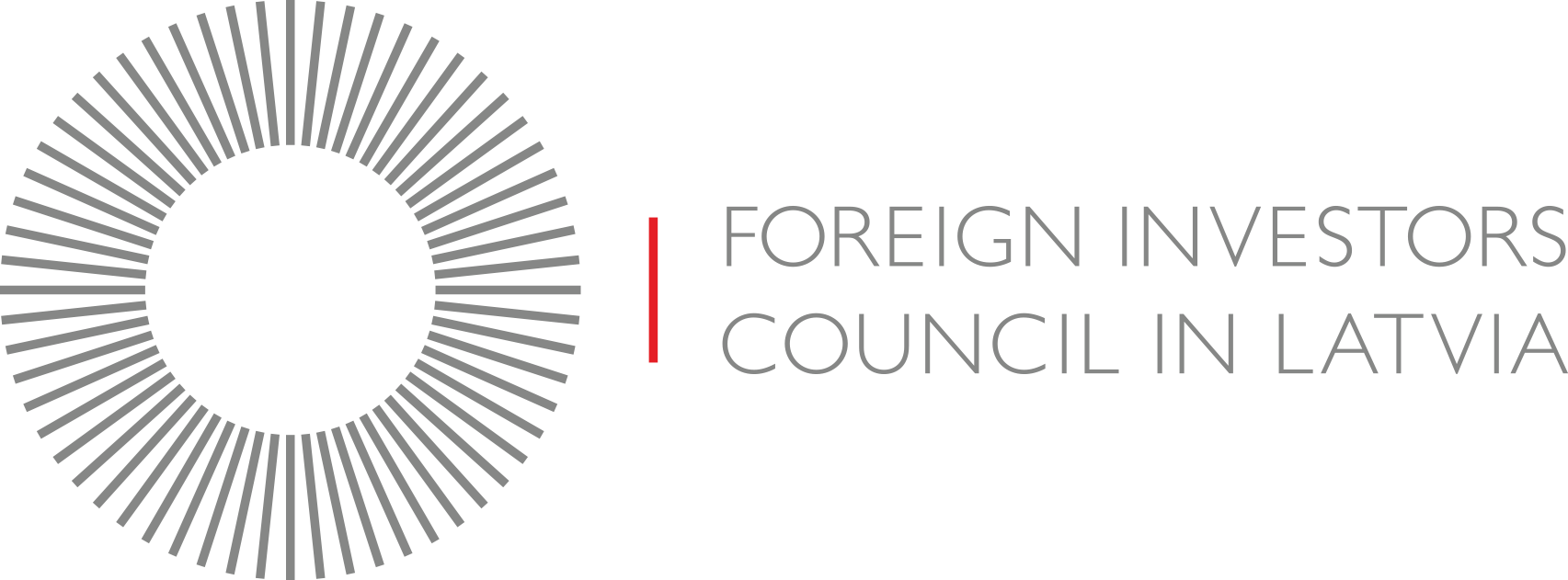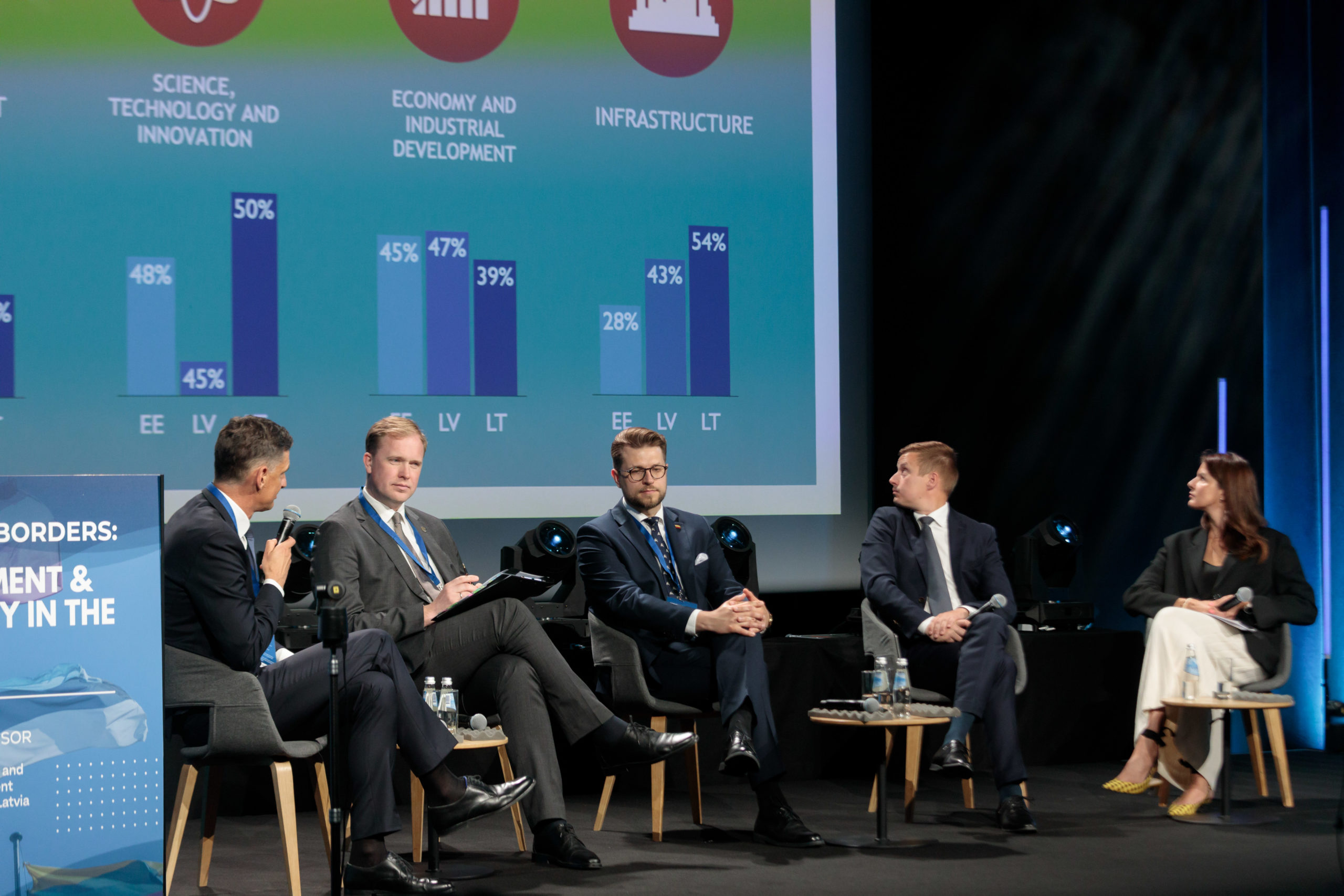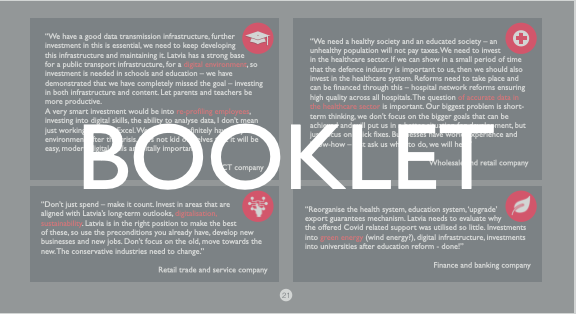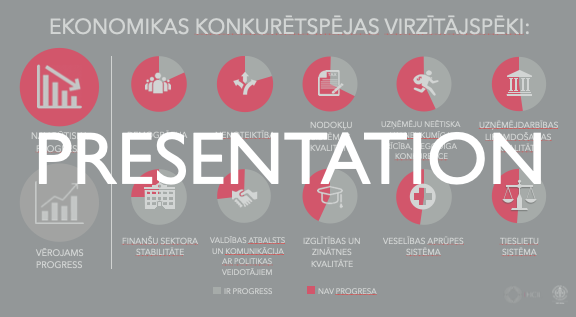The Foreign Investors’ Council in Latvia (FICIL), in cooperation with the Stockholm School of Economics in Riga (SSE Riga) and RTU Riga Business School (RBS), has published the annual Foreign Investors’ Sentiment Index 2024: The Baltic States Edition. For the first time, this report provides a joint perspective on the investment environment in all three Baltic countries – Latvia, Lithuania, and Estonia.
The study confirms that despite geopolitical challenges and increasing security pressures in the region, foreign investors remain optimistic about the investment climate in the Baltics. At the same time, investors stress the need for decisive action from policymakers – especially in the areas of human capital development, digital transformation, and the more efficient use of public resources.
Key Findings:
- Human Capital as a Priority: Across all three Baltic states, investors identify the lack of talent and the mismatch between the education system and labour market needs as one of the most pressing challenges.
- Reducing Bureaucracy and Increasing Budget Efficiency: Particularly in Latvia, investors call for bold reforms in public administration, including institutional consolidation and the setting of transparent and measurable targets.
- Opportunities in Digitalisation and Innovation: Estonia is recognised as a regional digital leader, while Latvia has strong potential in this area, which has not yet been fully communicated or utilised.
- Strategic Value of Baltic Cooperation: Investors emphasise the importance of closer cooperation among the Baltic states, especially in defence, energy, and infrastructure.
- A New Geopolitical Reality: Investors urge both the EU and national governments to adapt to the new geopolitical environment, develop regional partnerships, and strengthen the Baltics’ capacity for security and growth.
FICIL Chairperson Reinhold Schneider noted: “Security concerns in the Baltics have become central to foreign investors’ outlook. But we also see that areas like education, innovation, and the green economy require proactive engagement. These challenges can become opportunities. This report stands out by combining in-depth qualitative analysis with practical recommendations from investors themselves. It is a valuable tool for shaping a sustainable and competitive Baltic region.”
Ieva Jāgere, Director General of the Investment and Development Agency of Latvia, added: “This report offers invaluable insight into how foreign investors perceive not only Latvia, but the broader Baltic region. It is encouraging to see the growing appreciation for our talent pool and infrastructure, and we fully agree that deeper cooperation among the Baltic states and across sectors is key to our future competitiveness. LIAA is committed to working closely with investors and public institutions to turn these recommendations into tangible actions.”
About the Study
The report was prepared by the Foreign Investors Council in Latvia (FICIL) in collaboration with the Stockholm School of Economics in Riga (SSE Riga) and RTU Riga Business School (RBS). It was led by FICIL Executive Director Tatjana Guznajeva, with input from policy expert Arnolds Ābelīte, methodological support from Professor Arnis Sauka (SSE Riga), and contributions from Dr. Claudio Rivera (RBS). The final version was reviewed by FICIL Board Chair Reinhold Schneider and Vice-Chair Zlata Elksniņa-Zaščirinska.
This year’s study includes input from 118 companies across the Baltics (58 Latvia, 32 Estonia, 28 Lithuania) and 17 in-depth interviews to enrich the survey findings. Additional insights were drawn from local investor surveys in Estonia FICE Executive Survey and Lithuania – the Investors’ Confidence Index for Lithuania (ICIL), ensuring a well-rounded regional perspective.






